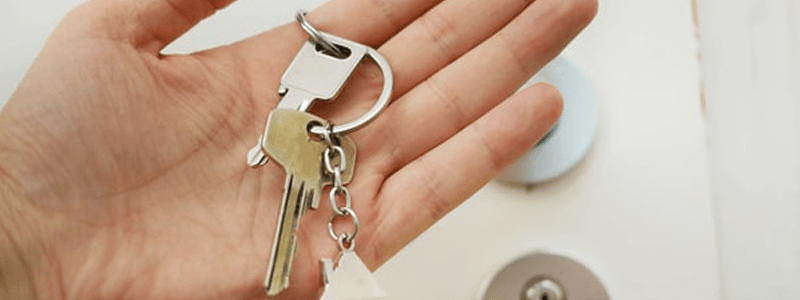Buying your own house is one of the biggest decisions that you’ll ever have to make. After years of moving from one place to the next without having any sense of stability, buying a house of your own will feel like your big break.
However, if you’re like most people, a big financial commitment like this will only be possible with the help of a mortgage loan. Even though mortgage loans have been around for quite some time, there’s a good chance you don’t understand much about them if this is the first time you buy property.
Understanding the terms and conditions of any mortgage loan and managing your expectations about the entire process is crucial given the amount of associated risk. To help you make the right decision, here are some things that you need to keep in mind before applying for a mortgage:
Your Budget
This goes without saying. Determining your budget early on before you even consider applying for a mortgage is the right thing to do. Unlike with other spontaneous purchases, there’s no room for ‘winging it’ when it comes to buying a house. You have to be absolutely sure that your financial situation would allow you to commit to the monthly mortgage payments for the term of the loan.
One of the first factors any lender will look at on your application is your debt-to-income ratio. This figure shows the percentage of your income you will need to pay for your mortgage debt and gives the lender the assurance that you’d be able to commit and won’t default on your payments.
It’ll also give you a more realistic idea about how the mortgage will affect your take-home monthly income so you can make the right decision. If budgeting is not your thing, you can seek help from an experienced professional to save.
Monthly Installments
Once you set your budget, you should figure out the exact amount that you’ll be paying in monthly installments. Mortgage loans are often complicated with many fine-print details that it’s not uncommon to feel lost trying to figure out your installments.
One way to work out your monthly payment is to use a mortgage calculator. Mortgage calculators are preset tools that can give you the exact figure you’ll be paying each month based on several variables including the home price, down payment, loan amount, and interest rate.
You’ll find it particularly useful when you want to compare different loan types from different lenders without too much hassle.
Improving Your Credit Score
Applying for a mortgage will drive you to seek help from financial institutions. Banks and lending institutions use your credit score to assess how much of a risk you bear as a borrower.
A high credit score shows that you’re a trustworthy borrower that they’d be willing to offer you more favorable loan terms and interest rates. Alternatively, if you’re in the habit of missing your credit card payments and defaulting on your rent, your credit score would be deemed subpar and you’d struggle to get a suitable loan offer.
Before considering applying for a mortgage loan, you should consider improving your credit score and giving it the boost it needs. Some of the fastest ways to do so include:
- Renegotiating your due debts with your creditors.
- Settle your credit card payments as soon as you make big purchases. You should also try to pay what you owe credit card companies more than once a month to make sure your credit utilization looks good on paper.
- Open a new bank account. This is an easy and effortless tactic to improve your credit utilization rate. However, beware not to open more than one account at once because it might reflect badly on your stance as a borrower.
Paying a Big Deposit
The bigger the deposit you pay, the smaller the mortgage loan you’ll need and the less monthly installments you’ll have to commit to. If you’ve already researched ways to supplement your income to be able to comfortably afford the mortgage loan, your second best bet is to save up to pay a big deposit.
The best time to start is early on when you’re first contemplating the idea of buying a new home. Rethink your spending habits and find where you can make some pay cuts to set you on the right track to building up your savings.
If you live paycheck to paycheck, this might seem like an impossible mission. However, if you start early enough and apply some planning and proper budgeting, you should be able to save enough to pay a decent deposit.
Consider Different Lenders
Don’t let your excitement to close the deal on your new house get in the way of considering different lenders until you find the right one. You should do your due diligence and different mortgage offers from different lenders.
On the outside they might all look the same, however, when you dig deep and start asking the right questions, you’ll uncover important information that will help you make up your mind.
Look for an established bank or lending institution, one that has a good reputation and a proven track record. Besides, the right lender should offer you the best deal in terms of interest rates, aggregate fees, and customer support.
Once you commit to a long-term mortgage, it won’t be easy to back down or change your lender, so make sure you have enough time to make a thorough lender evaluation.

Consider Other Features
Aside from the loan sum, interest rate, and other mortgage terms and conditions, you might want to consider other loan features. One of the worthy features that would help you choose which mortgage to go for is the option to make extra payments whenever you wish.
This gives you more control over your finances because then you’d have the chance to settle your loan earlier than expected. Other favorable mortgage loan features include repayment breaks and extended line-of-credit. Such extra features are not only nice add-ons, they can also determine which lender to choose if the main mortgage features are pretty much the same.
Applying for a mortgage is a lengthy process that can sometimes be overwhelming and confusing especially if you’re not well prepared. The above points can help you manage your expectations to look past the ambiguities and focus on finding the right mortgage with the right lender.




